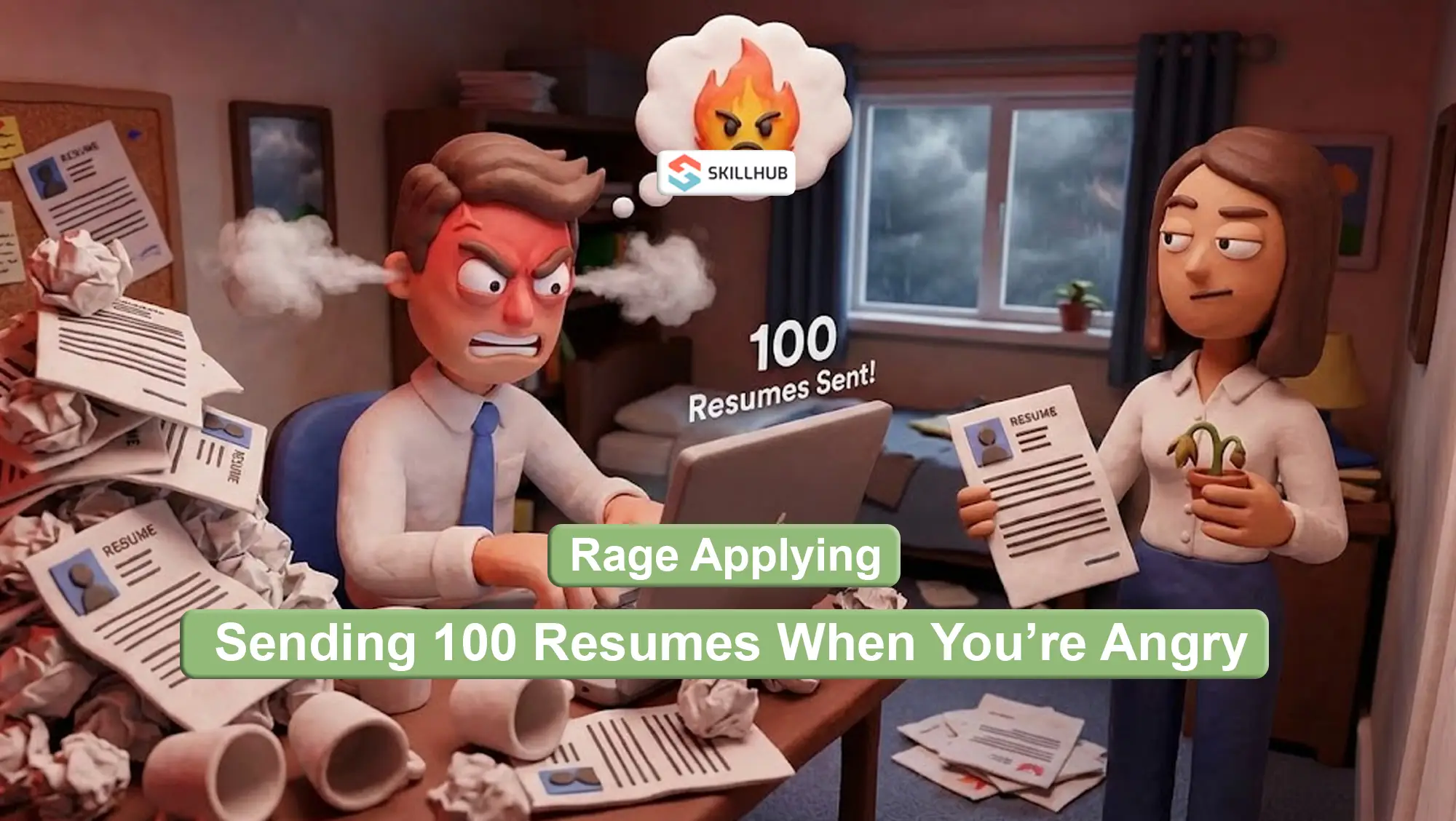Salary Negotiation Scripts: 5 Word-for-Word Examples

The single most expensive mistake a professional can make is failing to negotiate their salary. This conversation, often lasting less than fifteen minutes, can dictate your earnings trajectory for the next decade. A single $5,000 difference, compounded with modest annual raises over a 30-year career, can result in a net loss of hundreds of thousands of dollars in lifetime earnings. Yet, most candidates enter this high-stakes financial discussion utterly unprepared, armed with vague hopes rather than precise, tested language. They treat negotiation as a confrontation to be avoided, rather than what it is: a collaborative, data-driven business discussion about the market value of your expertise.
Knowing the theory is insufficient. Success in this arena depends on having a clear strategy and the exact, word-for-word scripts to execute it under pressure. A poorly phrased question or a hesitant counteroffer can cost you thousands. This guide moves beyond theory to provide five essential, field-tested negotiation scripts. These are not mere suggestions; they are verbal tools designed to control the narrative, justify your value, and maximize your final compensation package.
Tactic 1: The Deflection Script
The Challenge: The recruiter asks, "What are your salary expectations?" or "What are you currently earning?" early in the interview process. This is not a casual question; it is a tactical maneuver. It is a trap designed to anchor you to the lowest possible number. Your goal is to deflect without appearing difficult.
The Strategy: Postpone the conversation until a formal offer is made. You have no leverage until they have decided they want to hire you. The person who names a number first loses control of the "bargaining zone." Frame your deflection around ensuring a perfect "fit" for the role, showing that your priority is the work, not the paycheck.
Never be the first to name a number. The first number on the table anchors the entire negotiation. If you state your expectation is $80,000, you will never get an offer for $100,000, even if that was their budgeted amount. Your silence is your greatest asset.
This final script masterfully flips the question back onto them, forcing them to reveal their anchor point first.
Tactic 2: The Justification Script
The Challenge: You have a written offer, but it's below your market research and expectations. You need to present a counteroffer that is confident, data-driven, and professional.
The Strategy: Your counteroffer must be presented as a logical business case, not an emotional plea. It must be based on three pillars: market data, your unique qualifications, and your enthusiasm for the role. This conversation should ideally happen over the phone for maximum rapport, followed by a written confirmation.
Pillar 1: Arming Yourself with Market Data
You cannot say "I feel I deserve more." You must say "The market dictates a higher value."
- Where to find data: Use verified sources like Glassdoor, Levels.fyi, and professional industry reports.
- How to frame it: Find the 75th percentile for your role, experience level, and geographic location. This is your justifiable target.
Pillar 2: Justifying Your Value
This is where you connect the market data to your personal performance.
- Build your case: Before the call, review your resume and select your top three quantified achievements. This is where your list of professional achievements becomes your most powerful tool.
- Example justification: "The market data shows a range of $110k-$130k. I am targeting the higher end of that range because of my specific experience in reducing customer churn by 30%, which seems to align perfectly with the core challenge you described in the interview."
Word-for-Word Phone Script:
"Thank you so much for the offer. I'm very excited about the opportunity to join the team and contribute to [Company Goal].
I've had a chance to review the compensation package. Based on my research for a [Your Role Title] with [Your Key Skill/Experience] in the [Your City] market, the competitive salary range is closer to [$X - $Y].
Given my [mention a specific, quantifiable achievement from your resume], I am confident I can deliver significant value from day one. With that in mind, I would be thrilled to accept an offer with a base salary of [$Z - your counter-offer]."
This script frames your request around objective market data and your specific, proven value, making it a business discussion, not a personal demand.
The Expertise Barrier: The High Cost of Hesitation
Knowing the words is only half the battle. Delivering a counter-offer script with confidence, especially when facing a trained recruiter, is a high-pressure performance. Your palms will sweat. Your voice may shake. You will feel an overwhelming urge to back down, to seem "grateful" and not "greedy." This is a normal physiological fear response.
Recruiters are trained to detect and exploit this hesitation. They do this every day; you do this once every few years. This asymmetry of experience is where you lose. A hesitant tone, a nervous pause, or a failure to hold your ground when you receive pushback signals a lack of conviction and undermines your entire position. This is where most self-negotiators fail, costing themselves thousands.
Can you, with absolute certainty, deliver these scripts with the unshakeable confidence of a seasoned executive, even when the person on the other end of the line says "no"? This is a performance based on mastering not just the words, but the psychology behind them. For those who question their ability to perform under this pressure, it's wise to consider professional career coaching.
Tactic 3: The Pivot Script
The Challenge: You've made your counteroffer, and the recruiter responds, "I'm sorry, but the maximum base salary for this role is locked in at [$X]." This is a common tactic, but it is rarely the end of the conversation.
The Strategy: Acknowledge their constraint on the base salary, then immediately pivot the negotiation to other components of the total compensation package. Never accept the first "no" as the final answer. This demonstrates you are a collaborative, sophisticated problem-solver.
Word-for-Word Pivot Script:
"I understand that the base salary has internal constraints. Thank you for clarifying. Since there isn't flexibility on the base, I'd like to discuss other ways we can bridge the gap to a competitive total compensation package.
Could we explore a one-time sign-on bonus of [$Y] to compensate for the difference? Alternatively, would it be possible to increase the annual performance bonus target to [Z]% or add an additional week of paid vacation?"
This script shows you are a collaborative problem-solver, not an adversary. It opens the door to negotiating a wide array of valuable assets.
What Else Can Be Negotiated? (Total Compensation)
Tactic 4: The Final Offer Script
The Challenge: The negotiation has gone back and forth, and you are close to your desired number but not quite there. You need to make a final, firm push that encourages them to close the deal.
The Strategy: Propose a final, specific number and state that if they can meet it, you are prepared to sign immediately. This creates a clear, actionable path for them to secure you as a candidate. It signals that you are decisive, respectful of their time, and that the negotiation is coming to an end.
Word-for-Word Final Offer Script:
"I truly appreciate you working with me on this. We are very close.
If you can get the offer to a base salary of [$X] and a sign-on bonus of [$Y], I am prepared to accept the offer and sign the documents today. I am very excited to get started."
Be prepared for them to accept. This is not a bluff; it is a closing move.
Tactic 5: The Acceptance Script
The Challenge: They have agreed to your terms. You need to accept professionally while ensuring everything is documented.
The Strategy: Express your enthusiasm and immediately ask for the revised offer in writing. Do not resign from your current position or stop exploring other opportunities until you have a signed, updated contract in hand. Verbal promises are not legally binding.
Word-for-Word Acceptance Script:
"That's fantastic news. Thank you so much. I happily accept. I am incredibly excited to join the team.
Please send over the revised offer letter, and I will sign and return it promptly."
Once you have the final written offer, you can confidently write your two-week notice letter and begin your transition.
Conclusion: Preparation is Profit
Salary negotiation is a game of preparation. By arming yourself with these proven, word-for-word scripts, you transform yourself from a passive applicant into a proactive manager of your own career value. Practice them, internalize them, and use them to secure the compensation you deserve.
Ready to perfect your delivery and ensure you walk into your next negotiation with unshakeable confidence? We invite you to consult with a Skillhub Career Expert today.
%20(1).png)



%20(1).webp)